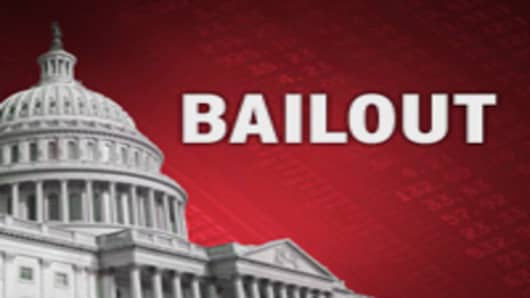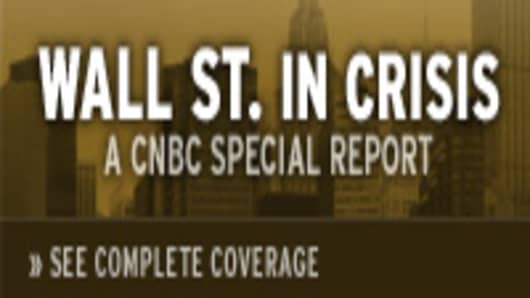The U.S. Senate voted in favor of a revised $700 billion bailout bill Wednesday night, breathing life back into closely watched legislation that supporters say will revive paralyzed credit markets in the United States.
The Senate approved the Wall Street bailout legislation by a vote of 74 to 25.
U.S. Senate Majority Leader Harry Reid said he expected the House of Representatives to approve the financial rescue package next. "It is my expectation that the House of Representatives will follow suit," the Nevada Democrat said.
U.S. President George W. Bush in a statement said that he applauded the Senate and the efforts of both Republicans and Democrats in passing the bill.
"They worked across the aisle to make vital improvements to the rescue package I sent Congress last month - including an expansion of deposit insurance that will help protect the savings of American families and small businesses," Bush said.
The White House and European policy makers have called the measure crucial to world financial health with recessionary signals mounting in the world's largest economy and the credit crisis reverberating among European banks.
Meanwhile, France and Germany clashed over the idea of a U.S.-style financial rescue fund for Europe amid further signs of contagion from the global credit crisis.
In Washington, Congressional leaders added two sweeteners to the bill—a tax cut and extended federal protection for bank deposits—in the hope that it would sail through the Senate and then return to the House for an up-or-down vote.
The vote came after another whirlwind day in the markets in which shares of bellwether U.S. conglomerate General Electric plunged as much as 9 percent on concerns about future earnings until super-investor Warren Buffett took a $3 billion stake.
The stock markets suggested investors expected the bailout to pass—but investors had also expected the House to approve the plan on Monday.
With all 435 members of the House and 35 of 100 Senators up for reelection on Nov. 4, politicians were fearful of voter backlash against a plan widely seen as a taxpayer bailout of Wall Street's errors.
Voter sentiment may have changed since Monday's rejection of the rescue plan by the House led to a 777-point plunge on the Dow, wiping billions of dollars off the value of retirement funds and personal wealth.
The presidential candidates, Republican John McCain and Democrat Barack Obama, left the campaign trail for Washington where they cast their votes as senators, both having said failure to pass the bill would have dire consequences.
Meanwhile, economists kept close watch on interbank interest rates, a measure of credit liquidity that is vital to fueling global economic activity.
Global money markets remained largely impaired on Wednesday, with banks wary of lending to each other—as they have been since the bankruptcy of Lehman Brothers and nationalization of other major financial institutions in the United States and Europe.
The bill before the Senate calls for the U.S. Treasury to buy distressed assets from financial firms staggering under the weight of failed mortgages, intending to clean up their balance sheets and jump-start lending.
Buffett addressed voter concerns about the bailout, calling it necessary to unfreeze credit and reinvigorate interbank lending.
"There's no question this is a rescue plan, but it's a rescue plan for the American economy, not for Wall Street," Buffett told CNBC. "This is designed to help the American economy from going into the ultimate tailspin."
Buffett, an Obama supporter, added: "This is an economic Pearl Harbor, and the whole world wants to deleverage. The only entity in the world that can leverage up to match that force is the U.S. Treasury." Click here to watch Buffett's interview on CNBC.
Lobbyists from the banking industry and the U.S. Chamber of Commerce were trying to identify House members who might reconsider their Monday "no" votes, and business executives around the world warned that the crisis would hit growth.
After Wall Street giants Bear Stearns, Lehman Brothers and Merrill Lynch were swallowed by rivals and with commercial banks teetering or collapsing, European banks have undergone their own tumult.
Lloyds TSB Group was poised to take over British rival HBOS, potentially at a cut-rate price. This came after the Dutch-Belgian bank Fortis was partially nationalized through an 11 billion euro bailout on Sunday.



